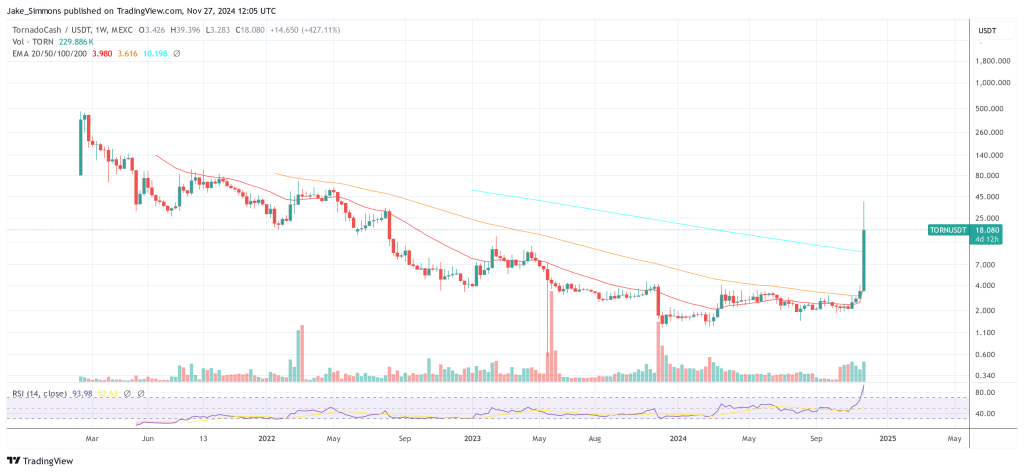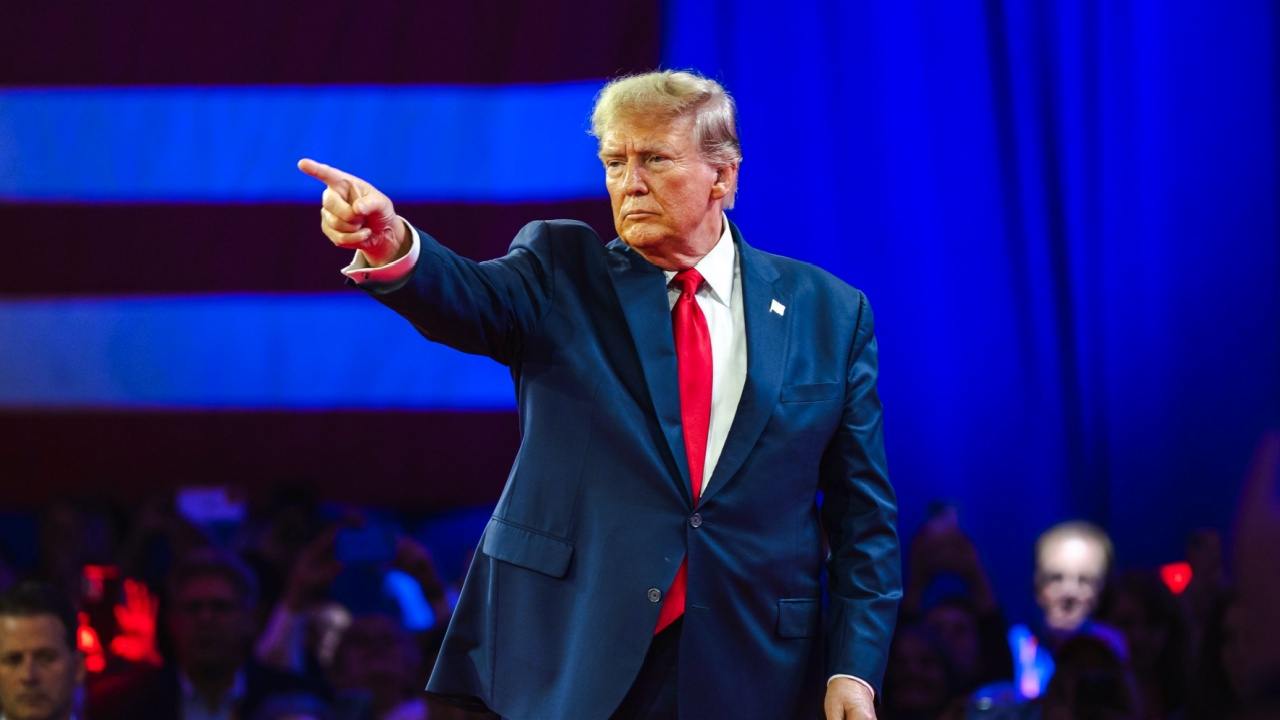Tornado Cash Scores ‘Stunning Victory’ For Crypto Against US Treasury Department
aOn November 26, the Fifth Circuit Court of Appeals ruled that the US Department of the Treasury’s Office of Foreign Assets Control (OFAC) exceeded its authority by sanctioning crypto mixer Tornado Cash’s immutable smart contracts. The court declared that these autonomous smart contracts, which operate without human intervention, cannot be classified as “property” under federal […]

aOn November 26, the Fifth Circuit Court of Appeals ruled that the US Department of the Treasury’s Office of Foreign Assets Control (OFAC) exceeded its authority by sanctioning crypto mixer Tornado Cash’s immutable smart contracts. The court declared that these autonomous smart contracts, which operate without human intervention, cannot be classified as “property” under federal law, effectively placing them outside the scope of the International Emergency Economic Powers Act (IEEPA).
Crypto Wins Big Time
The ruling overturns OFAC’s prior designation of Tornado Cash’s smart contracts on the sanctions list—a move that had significant implications for privacy and decentralization within the crypto industry. The judges emphasized that immutable smart contracts are lines of code not subject to ownership or control, and thus cannot be sanctioned as property.
Tornado Cash is an open-source, decentralized protocol that enables users to enhance the privacy of their crypto transactions on the Ethereum blockchain. By pooling transactions and obscuring the trail of funds, it offers a layer of anonymity.
In August 2022, OFAC sanctioned Tornado Cash, alleging that it was used to launder more than $7 billion worth of cryptocurrency since its creation in 2019, including funds linked to North Korean hackers. The sanctions marked the first time the US government targeted a decentralized protocol rather than specific individuals or entities..
The Fifth Circuit’s decision centers on the interpretation of “property” under the IEEPA. The court concluded that immutable smart contracts—self-executing code that runs autonomously on a blockchain—do not constitute property because they are not capable of being owned or controlled by any individual or entity. This distinction is crucial, as the IEEPA grants the Treasury the authority to regulate or prohibit transactions involving foreign property interests but does not extend to autonomous code without ownership.
The court stated, “Immutable smart contracts are autonomous and self-executing pieces of code that function without human intervention. They do not possess the attributes of property as traditionally understood under federal law.”
Crypto Industry Reactions
Paul Grewal, whose company Coinbase supported the legal challenge against the Treasury, hailed the decision as a historic win for the crypto community. Writing on X (formerly Twitter), he stated: “Privacy wins. Today, the Fifth Circuit held that the US Treasury’s sanctions against Tornado Cash smart contracts are unlawful. This is a historic win for crypto and all who care about defending liberty. Coinbase is proud to have helped lead this important challenge.”
The Coinbase CLO emphasized the court’s recognition that “blocking open-source technology entirely because a small portion of users are bad actors is not what Congress authorized.” He added that the sanctions “stretched Treasury’s authority beyond recognition,” and the court’s decision corrects this overreach.
Variant Fund CLO Jake Chervinsky described the ruling as a “stunning victory for crypto.” He added: “The court held that immutable smart contract protocols are not “property” subject to sanctions “because they are not capable of being owned” and struck down OFAC’s 2022 designation of Tornado Cash. Decentralization wins.”
Matt Corva, a lawyer with Ethereum development firm ConsenSys, underscored the significance of the decision as a check on administrative overreach. He remarked: “The Fifth Circuit Court of Appeals ruling in favor of plaintiffs challenging the prior addition of Tornado Cash smart contracts to the sanctions list pursuant to IEEPA is tremendous. Incredible win here. Another blow to the administrative state acting without updated and direct congressional authority.”
Corva also pointed out the disproportionate burden placed on those affected by such government actions: “There is huge cost to those impacted in trying to make that right. This outcome wouldn’t have been possible without Coin Center, Coinbase’s Paul Grewal, and the many minds and wallets who contributed to this and similar challenges around the country in other cases.”
Uniswap Labs CEO Hayden Adams expressed astonishment at the court’s decision: “Holy shit. Immutable smart contracts just beat the treasury department in court. […] Incredible the degree to which crypto is killing it in federal courts.”
As of now, the Treasury Department has not announced whether it will appeal the Fifth Circuit’s decision. The case could potentially be escalated to the Supreme Court if the government seeks to challenge the ruling further.
At press time, the Tornado Cash token (TORN) traded at $18.08, up 415% in the last 24 hours.

What's Your Reaction?




















